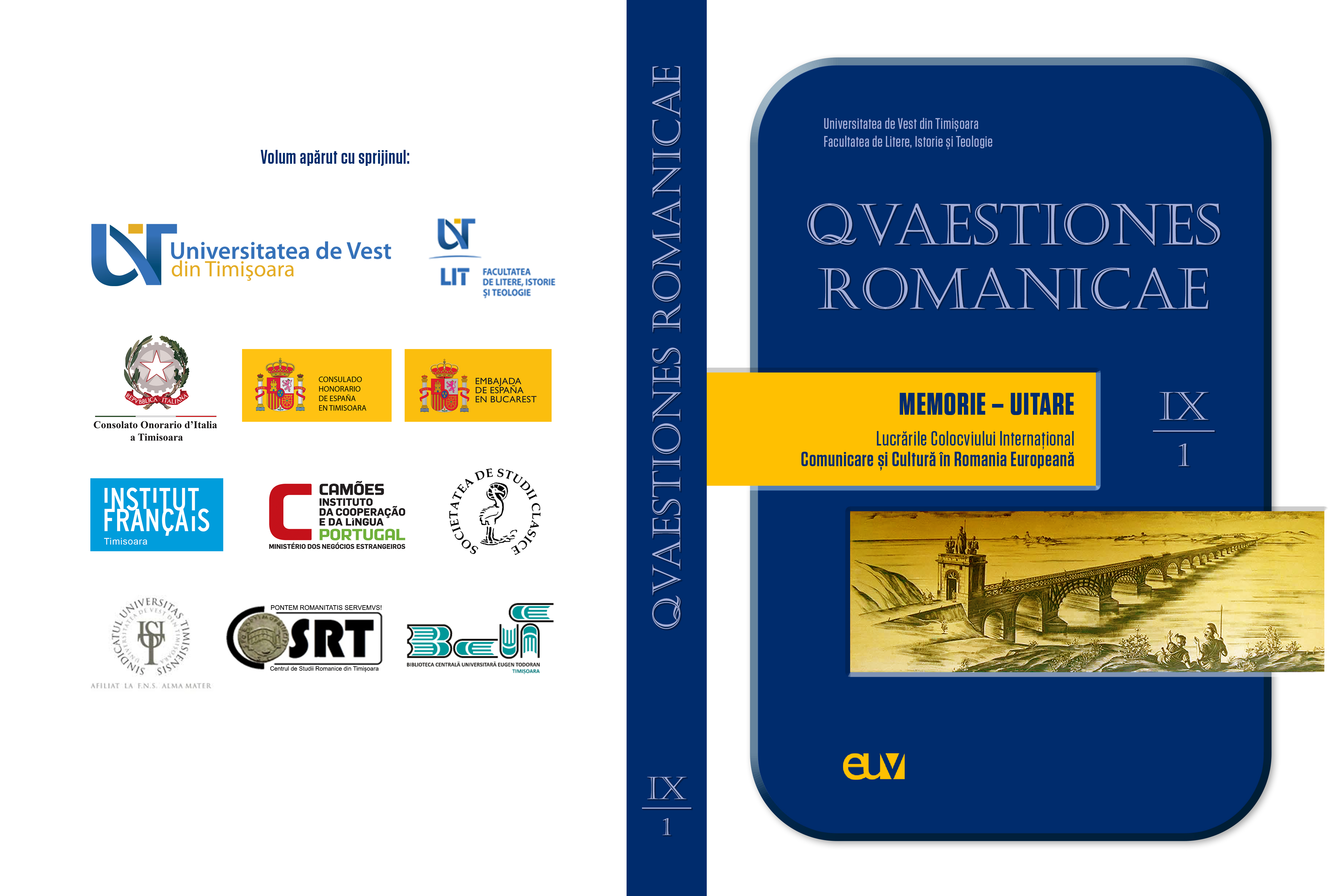Mnemosyne și Anamnesis – reprezentări religioase în opera lui Hesiod
Mnemosyne and Anamnesis – Religious Representations in Hesiod’s Work
Author(s): Adina Voichița RoșuSubject(s): Studies of Literature, History of ideas, Philology, History of Religion, Psychology of Religion
Published by: Universitatea de Vest din Timişoara
Keywords: memory; recollection; forgiveness; immortality; time;
Summary/Abstract: Our study aims to analyze the religious representations of the memory and recollection in Hesiod’s work, following their transposition from the cosmology plan onto the eschatology one, starting from their deification and reaching out to their power and sacred message. The Hesiodic concepts or themes, along with the Homeric ones, represented sources of works for later writers. On the other hand, the outstanding work of this great and ancient epic author depicts a broad genesis in a systematic and comprehensive way, approaching various themes that are placed at the boundaries between myth and philosophy. In The Theogony, the past is part of the cosmos, exploring it means discovering what hides deep inside a being; the past is shown as a dimension of the world beyond, and the history that Mnemosyne sings is a decoding of the invisible. In return, Anamnesis, the Recollection, is presented in the poetry of moral and religious inspiration as a form of initiation. In Hesiod’s work, Mnemosyne is the one who brings the memory, but also the one who helps forgetting the concerns. Remembering the past compensates for forgetting the present. Memory is shown as a source of immortality, of which the funerary inscriptions speak about, assuring the deceased the survival in the otherworld. The memory of invisible times belongs to the world beyond. The memory and recollection are linked to folk mythical history in Hesiod’s writings, accompanied by the meditation upon Time and Soul problems.
Journal: Quaestiones Romanicae
- Issue Year: IX/2021
- Issue No: 1
- Page Range: 135-143
- Page Count: 9
- Language: Romanian

